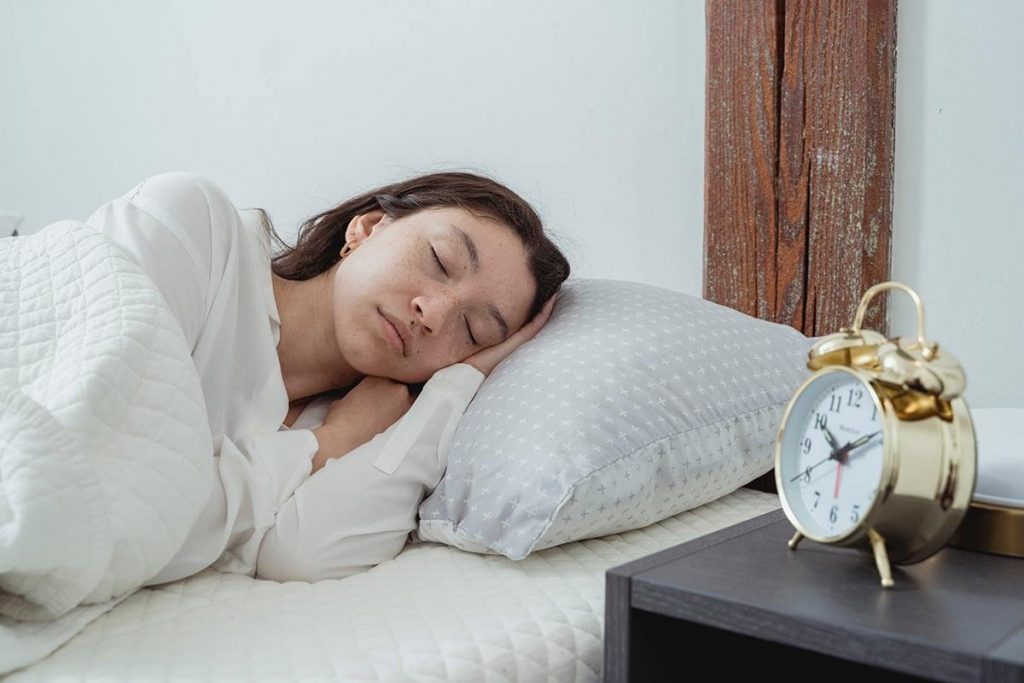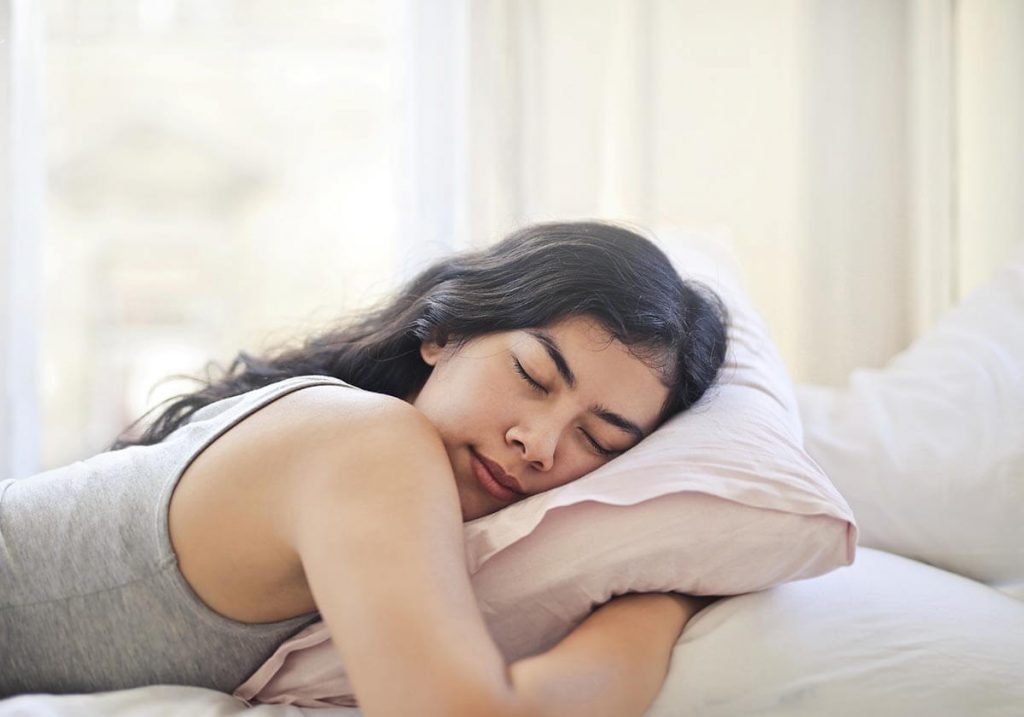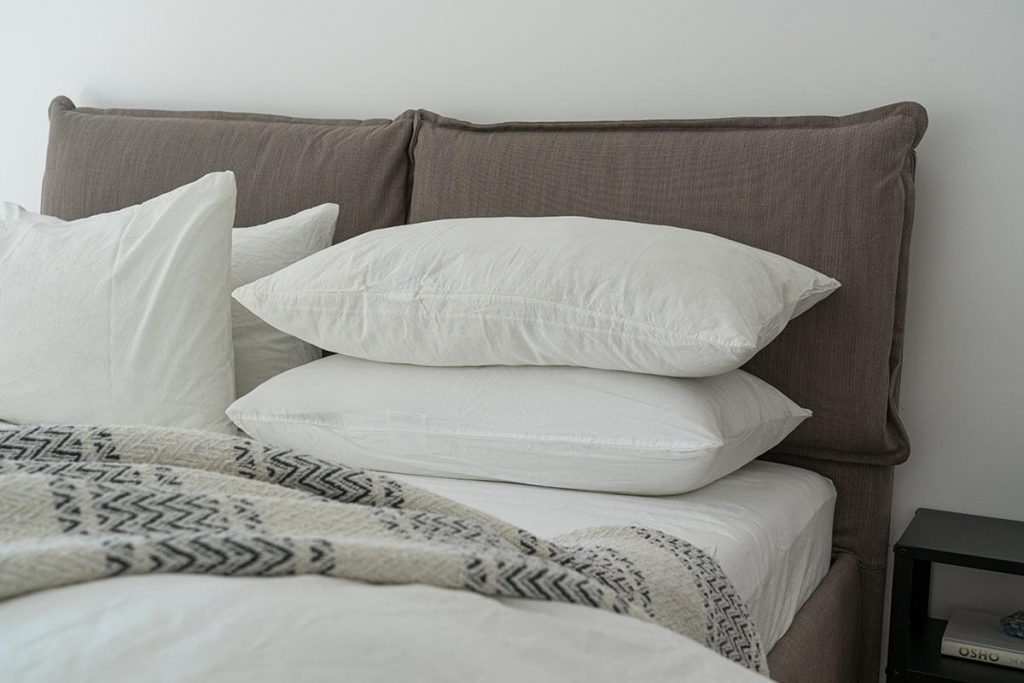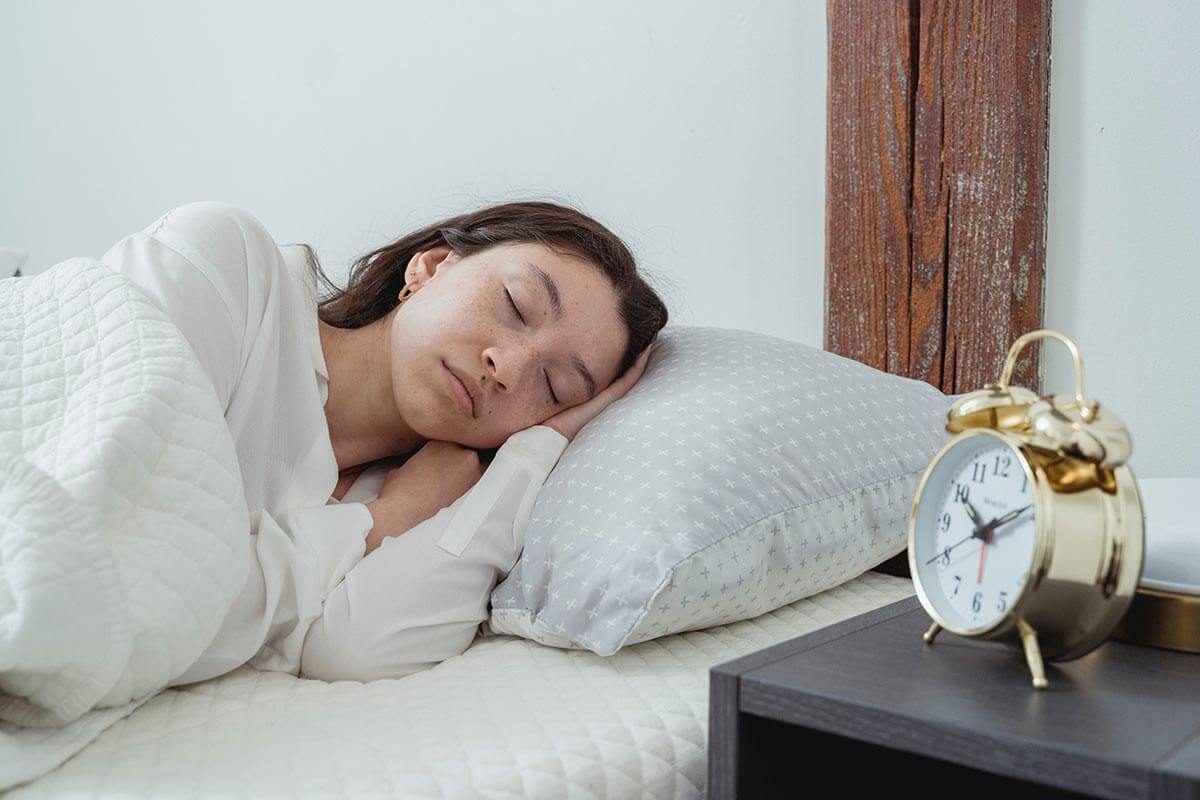- Woke Up with Neck Pain
- Causes of Neck Pain After Sleeping
- Role of Sleep Problems
- Treating a Sore Neck from Sleeping
- When to See a Doctor?

“My neck hurts after sleeping!” This is a common complaint among men and women and even adolescents and children. Some cases of neck pain have no known cause, while others are due to injuries or aging. However, people may go to bed with no medical issues and wake up with neck pain, wondering why the pain developed. One study found one out of 15-20 cases of chronic pain in the neck and shoulders are from sleeping problems.
Woke Up with Neck Pain
A stiff neck after sleeping is painful, restricting the movement of the neck and head. It can be mild pain or pain that is like an electric shock. In some cases, if muscles are pulled tight enough, you might wake up with your head pulled down towards a shoulder. The pain is due to muscles, ligaments and joints that were stressed due to your neck and head being held at an awkward angle for an extended period of time while sleeping. Waking pain and stiffness are the most common symptoms.
Causes of Neck Pain After Sleeping
There are three main causes of a sore neck from sleeping.
1. Sleeping position
A study of the relationship between sleep posture and non-specific (no known cause) spinal symptoms found sleep posture does cause spinal symptoms. This study considered symptoms from the lumbar spine (lower back), cervical spine (neck) and whole spine. The results of the examination of symptoms were that there is a relationship, and further research is recommended as to the benefits of sleeping on the side because it may be the position most likely to prevent spine pain, including in the neck.
However, some researchers also support sleeping on the back as the best way to prevent a sore neck from sleeping. Many doctors believe that sleeping on the stomach is one of the worst sleeping positions because it places increased stress on spinal tissue. It requires turning the neck too far in one direction.

2. Pillow does not provide adequate support
Your pillow has a big influence on the position of your neck and is a frequent reason the neck pain is worse when lying down. If the pillow is too flat, soft, high or stiff, your neck is positioned in a way that stresses neck muscles.
The goal is to use a pillow that maintains the natural curve of the neck and keeps the spine straight. Too many people use a pillow that forces the head forward and the chin towards the chest.
It may require two pillows to keep the neck in alignment with the rest of the spine. One is used to support the neck, and the other pillow supports the head. For example, if you sleep on your back, you can use a rounded pillow under the neck and a flatter pillow under the head. If you sleep on your side, you can sleep with a pillow that has a riser for under the neck.
Additional recommendations include using a pillow made of memory foam or a feather pillow. Both types of pillows will conform to the neck’s shape, minimizing the chances you slept on the neck wrong.

3. Sudden movement
Another cause of neck strain while sleeping is due to making sudden movements that wrench the neck muscles, tendons and ligaments. For example, tossing and turning in your sleep or flinging your arms around.
Myoclonus is a brief, involuntary jerking or twitching of one or more muscles. It is caused by either sudden muscle tightening or relaxation. Sleep myoclonus occurs while falling asleep or during sleep. The sudden jerking can cause muscle strain. Usually, the myoclonus is not disabling, and doctors need more research to determine its cause. If the jerking gets worse or other symptoms accompany the involuntary movements, it is important to see a doctor.
Role of Sleep Problems
In addition to the three reasons mentioned, you may find you woke up with neck pain after sleeping due to low quality sleep. There is research indicating sleep problems can lead to neck pain. Sleep problems include:
- Trouble falling asleep
- Difficulty staying asleep
- Waking early in the morning
- Restless sleep that is nonrestorative
People with problems in at least three areas were more likely to develop musculoskeletal pain which could express itself as neck pain. Low sleep quality interferes with the muscle healing process.
Treating a Sore Neck from Sleeping
You can take some steps to treat neck pain.
- Take an over-the-counter pain reliever
- For 20 minutes at a time, apply ice during the first 48-72 hours and heat after 72 hours
- Massage your neck
- Use a heating pad
- Take a warm shower or bath
- Do gentle neck stretching exercises, like bending the head from side to side or yoga
Doing stretching exercises when your neck hurts from sleeping will not hurt the neck muscles. Some additional measures you can take to prevent neck pain include sleeping on a medium-firm mattress and maintaining a good posture throughout the day to avoid weakening the neck muscles.
When to See a Doctor?
Most cases of neck pain from sleeping are not serious. There are rare cases when it could indicate a medical evaluation is necessary when there are other symptoms, like a fever or nausea. You should see a doctor if the neck pain persists after addressing typical causes and treatments related to sleeping or if other symptoms develop.
Sources
- https://pubmed.ncbi.nlm.nih.gov/19005925/
- https://www.sleep.org/prevent-neck-pain-while-sleeping/
- https://pubmed.ncbi.nlm.nih.gov/31256029/
- https://www.health.harvard.edu/pain/say-good-night-to-neck-pain
- https://www.ninds.nih.gov/Disorders/Patient-Caregiver-Education/Fact-Sheets/Myoclonus-Fact-Sheet
- https://www.ncbi.nlm.nih.gov/pmc/articles/PMC2899838/
